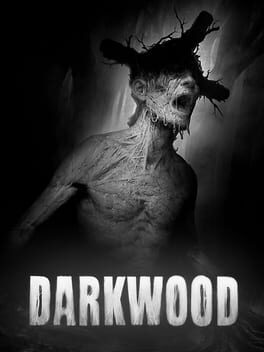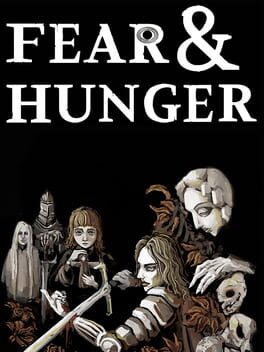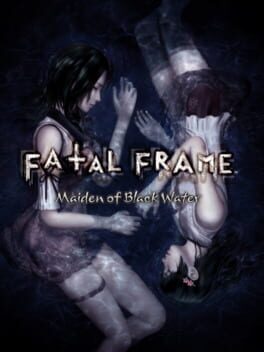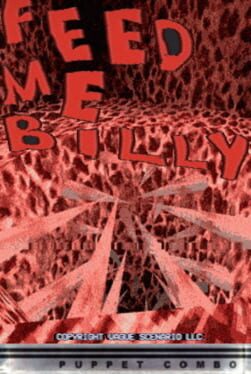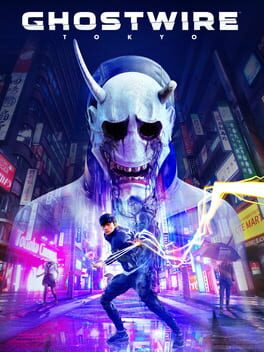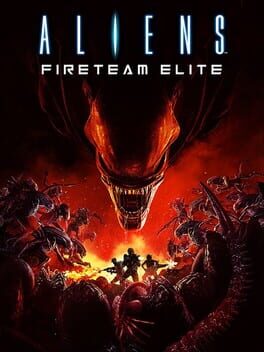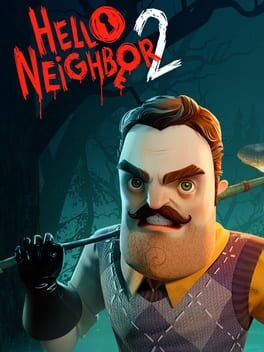Gameovah
2020
Very original (and eccentric), both in the worldbuilding and in the vaporwave aesthetics. The world feels wholly other as you explore it. As an investigative game is therefore pretty charming: you have to deal with both the mass-murder case and with a quite complex lore at the same time. And all without the amnesiac hero trope: a good use of user/avatar memory discrepancy.
2017
Its use of game mechanics and emergent horror dynamics is, as far as I can see, unmatched in its genre's history. Every mechanic is used to enhance horror, disempowerment, and bewilderment.
Its structure is so open that all the encounters, plot points, and events emerge (or seem to emerge) from the game system rather than from a linear pre-scripted flow of events. In this sense it's more akin to Dark Souls than to more cinematic and story-driven survival horrors.
As such, its structure also enhances users' vulnerability and anguish - you are always lost, you know almost nothing about the world around you, and basically every thing can kill you at any time. Not every night is supposed to be overcome. Not every encounter is meant to be beaten. Not every character to be saved, nor all objects to be found. Darkwood makes you feel left to your own in an unprecedented way.
This also enhances one of the game's main themes: the link between fear, folklore, and superstition. Just like the inhabitants of the woods, you are actually afraid through imagination rather than through what you see. The emphasis on sound and sound design, especially over night sequences, makes you feel afraid of things that many times never show up. The top-down view and the evocative written narratives similarly enhance imagination instead of direct sensory experience. You're actually a victim of your own fear and imagination.
The use of light is even more brilliant, as it all revolves around allowing you to see something instead of nothing (see: The Thing in Lacan and Žižek).
Podcast incoming for sure.
Its structure is so open that all the encounters, plot points, and events emerge (or seem to emerge) from the game system rather than from a linear pre-scripted flow of events. In this sense it's more akin to Dark Souls than to more cinematic and story-driven survival horrors.
As such, its structure also enhances users' vulnerability and anguish - you are always lost, you know almost nothing about the world around you, and basically every thing can kill you at any time. Not every night is supposed to be overcome. Not every encounter is meant to be beaten. Not every character to be saved, nor all objects to be found. Darkwood makes you feel left to your own in an unprecedented way.
This also enhances one of the game's main themes: the link between fear, folklore, and superstition. Just like the inhabitants of the woods, you are actually afraid through imagination rather than through what you see. The emphasis on sound and sound design, especially over night sequences, makes you feel afraid of things that many times never show up. The top-down view and the evocative written narratives similarly enhance imagination instead of direct sensory experience. You're actually a victim of your own fear and imagination.
The use of light is even more brilliant, as it all revolves around allowing you to see something instead of nothing (see: The Thing in Lacan and Žižek).
Podcast incoming for sure.
2018
As perhaps one of the hardest games I have ever played, it raises once more doubts about how meaningful difficulty in games could be.
On the one hand, the game openly draws from contemporary mainstream dark fantasy (and especially Miura, even exacerbating its turpitude) in a quite effective way. In their simplicity, character design and implicit storytelling are great, at least assuming you are into body horror and gore. The game hardly introduces something new but it has a raw and brutal imagery - and as a fan of both Silent Hill and Berserk I couldn't but enjoy it.
On the other hand, the game not only uses survival mechanics to improve difficulty but also provides users with some of the most cruel and punitive mechanics I've ever seen. Every minor mistake can put an end to a whole run, and many events that kill you or prevent you from proceeding are random. Many are the choices that lead you to defeat without any chance to avoid it. So it is not only a quite hard survival dungeon crawler but also a trial-and-error rage game. It's more a masochist journey than a challenge, it tests your endurance and self-denial more than your strategy and skill.
This is both its most brilliant feature and most evident issue. The game as a whole depicts a pilgrimage, therefore self-denial and unreasonable defeats reinforce the ultimate meaning of the experience. Sadly, by mixing survival mechanics and trial-and-error it soon becomes machinic, not only excruciating. And the RPG Maker aesthetics is not of help. It is almost impossible to stay immersed - fear and hunger become frustration, enemies become pixels, their movements just patterns, looting just spamming spacebar.
And yet, isn't this the very point of simulating transcendence and martirization? Isn't any spiritual process aimed at prescinding from body, going beyond immanence, and overcoming the "immersion" in the phenomenal world?
On the one hand, the game openly draws from contemporary mainstream dark fantasy (and especially Miura, even exacerbating its turpitude) in a quite effective way. In their simplicity, character design and implicit storytelling are great, at least assuming you are into body horror and gore. The game hardly introduces something new but it has a raw and brutal imagery - and as a fan of both Silent Hill and Berserk I couldn't but enjoy it.
On the other hand, the game not only uses survival mechanics to improve difficulty but also provides users with some of the most cruel and punitive mechanics I've ever seen. Every minor mistake can put an end to a whole run, and many events that kill you or prevent you from proceeding are random. Many are the choices that lead you to defeat without any chance to avoid it. So it is not only a quite hard survival dungeon crawler but also a trial-and-error rage game. It's more a masochist journey than a challenge, it tests your endurance and self-denial more than your strategy and skill.
This is both its most brilliant feature and most evident issue. The game as a whole depicts a pilgrimage, therefore self-denial and unreasonable defeats reinforce the ultimate meaning of the experience. Sadly, by mixing survival mechanics and trial-and-error it soon becomes machinic, not only excruciating. And the RPG Maker aesthetics is not of help. It is almost impossible to stay immersed - fear and hunger become frustration, enemies become pixels, their movements just patterns, looting just spamming spacebar.
And yet, isn't this the very point of simulating transcendence and martirization? Isn't any spiritual process aimed at prescinding from body, going beyond immanence, and overcoming the "immersion" in the phenomenal world?
After having liked the first episode of the series, enjoyed the second one, and endured the third, I had very low expectations of this. And yet it has been way worse than I expected.
Except for the lore, the game is so (both narratively and interactively) clunky, so obtuse in the aesthetics, so kitsch and machinic in its mechanics, so anticlimatic and poor in its atmospheres, so lazy in its nth borrowingn of j-horror... I almost can't think of a single good thing about it. Which is quite sad for a golden-age-survival-horror-lover like me.
Except for the lore, the game is so (both narratively and interactively) clunky, so obtuse in the aesthetics, so kitsch and machinic in its mechanics, so anticlimatic and poor in its atmospheres, so lazy in its nth borrowingn of j-horror... I almost can't think of a single good thing about it. Which is quite sad for a golden-age-survival-horror-lover like me.
2023
5/10
It is undoubtedly the most refined Final Fantasy since the twelfth installment in the series.
And yet, compared to Final Fantasy XV, this is not necessarily a good thing (unless you want to claim that something stable, balanced, refined, and polished is by definition better than something unstable, unbalanced, unpolished, and unrefined - which is something I strongly disagree with). FFXV was incomplete, hasty, and narratively defective but how original was its touristic reinterpretation of the hero's journey?, how fresh and cruel was its approach to the Bildungsroman?, how brilliant was its use of open world mechanics and ludonarrative dissonance to make you actively delay the moment you'd face your destiny?, how brilliant was its rhetoric use of its worldbuilding and aesthetics?, how brave was its merging high fantasy, magitek, and japanese trashy clichés?
Compared to that, FFXVI is rather serious and straightforward. Spoilers ahead - The plot is archetypal: first you must free people from slavery and then you must save the world from being enslaved by a god in a (guess what?) neverending cycle of death and rebirth. A quest for the free will then, socio-political first and philosophical then, in both cases markedly existential. It's something that Final Fantasy fans are (perhaps too much) familiar with, as this could be the synopsis of most of the games in the series. This time, the worldbuilding is much more pluralistic than usual, inspired by Game of Thrones but without relativism. The Dominants remind of Attack on Titan's giants and the Eikons are destructive death-bringers depicted as kaijus (Ifrit appears just like Godzilla) - in the end, the quest to free mankind from slavery is also a quest to free the world from such powerful weapons (and this trough the use of such weapons, of course). A quest to destroy technologies of power, that begins with a wise use of those same technologies.
The gameplay is rather dull: you basically walk (or run) and kill things from beginning to end. Primary quests are terribly linear but full of good cutscenes and breathtaking action sequences, which is good. Secondary ones are all fetch quests: speak here, speak there, speak back here, kill that monster, speak again, that's it. Except for a bunch of quests towards the end of the game, all the non-primary material here is (both gameplay and plotwise) almost pure trash.
Which is not that surprising, I mean, the whole series is about having a story-driven main quest and dozens of dissonant (at best) or dramatically bad (at worst) secondary activities - with the only exception being FFXV, which as said tried to make sense of its dissonance.
Let's just say that they could be more daring this time. Although there's violence and sexuality in an unprecedented way for the series, the rest is rather conservative, from the narrative tropes to the mmorpg gameplay.
The plot may be rich and all but I personally fond it less exciting (and moving, and thought provoking) than most of the others in the series, and same goes for the rich, perhaps too rich, cast of characters.
It is undoubtedly the most refined Final Fantasy since the twelfth installment in the series.
And yet, compared to Final Fantasy XV, this is not necessarily a good thing (unless you want to claim that something stable, balanced, refined, and polished is by definition better than something unstable, unbalanced, unpolished, and unrefined - which is something I strongly disagree with). FFXV was incomplete, hasty, and narratively defective but how original was its touristic reinterpretation of the hero's journey?, how fresh and cruel was its approach to the Bildungsroman?, how brilliant was its use of open world mechanics and ludonarrative dissonance to make you actively delay the moment you'd face your destiny?, how brilliant was its rhetoric use of its worldbuilding and aesthetics?, how brave was its merging high fantasy, magitek, and japanese trashy clichés?
Compared to that, FFXVI is rather serious and straightforward. Spoilers ahead - The plot is archetypal: first you must free people from slavery and then you must save the world from being enslaved by a god in a (guess what?) neverending cycle of death and rebirth. A quest for the free will then, socio-political first and philosophical then, in both cases markedly existential. It's something that Final Fantasy fans are (perhaps too much) familiar with, as this could be the synopsis of most of the games in the series. This time, the worldbuilding is much more pluralistic than usual, inspired by Game of Thrones but without relativism. The Dominants remind of Attack on Titan's giants and the Eikons are destructive death-bringers depicted as kaijus (Ifrit appears just like Godzilla) - in the end, the quest to free mankind from slavery is also a quest to free the world from such powerful weapons (and this trough the use of such weapons, of course). A quest to destroy technologies of power, that begins with a wise use of those same technologies.
The gameplay is rather dull: you basically walk (or run) and kill things from beginning to end. Primary quests are terribly linear but full of good cutscenes and breathtaking action sequences, which is good. Secondary ones are all fetch quests: speak here, speak there, speak back here, kill that monster, speak again, that's it. Except for a bunch of quests towards the end of the game, all the non-primary material here is (both gameplay and plotwise) almost pure trash.
Which is not that surprising, I mean, the whole series is about having a story-driven main quest and dozens of dissonant (at best) or dramatically bad (at worst) secondary activities - with the only exception being FFXV, which as said tried to make sense of its dissonance.
Let's just say that they could be more daring this time. Although there's violence and sexuality in an unprecedented way for the series, the rest is rather conservative, from the narrative tropes to the mmorpg gameplay.
The plot may be rich and all but I personally fond it less exciting (and moving, and thought provoking) than most of the others in the series, and same goes for the rich, perhaps too rich, cast of characters.
2023
5.5/10
Some good mechanics and a quite original (?) game flow don't make a good game, I guess.
Shifting between worlds and worlds-within-worlds is great. But that's it?
It's boring and pointless, and its aesthetics is intriguing but nothing more. I just finshed it and I am alread forgetting these 3 hours.
Some good mechanics and a quite original (?) game flow don't make a good game, I guess.
Shifting between worlds and worlds-within-worlds is great. But that's it?
It's boring and pointless, and its aesthetics is intriguing but nothing more. I just finshed it and I am alread forgetting these 3 hours.
2017
This review contains spoilers
7.5/10
I don't know what to say tbh. The last time I was so confused by a game after its ending was after the first Dark Souls.
I am not unsure about the qualities of the game's design of course. It's astonishing to see and overwhelming both to play and interpret:
- the level design is brilliantly dispersive;
- the creatures' behavior is just incredible (and incredibly complex - you can spend hours just watching them and striving to understand how do they work);
- most game mechanics are hidden and it's up to you to find out how to move, to interact, how things work, how the world works (I think I got only the very basics of Rain World, even after almost 20 hours of gameplay);
- the game's progression is made to make you feel completely lost - you don't know where to go, what to do, et cetera - as the small, powerless creature you are;
- you basically crawl, swipe, and run most of the time, you start to watch, to explore, to think as a prey - which is great and aid by the brilliant way the world design invites you to direct your gaze;
- it's also a very fascinating and aesthetically astonishing take on post-apocalyptic worldbuilding, many scenarios are so good you just cannot stop watching them;
- the game's narrative is more than obscure, it's the quintessence of implicit soulslike storytelling - there you have descriptions, here you have chunk of narrative you can find out by collecting items and carrying them in a specific place, to a specific character, assuming she likes you;
- the lore is deep, confusing, and overwhelming like everything else, which is great - after the first run I had the clear impression I just scratched the surface.
That said, it's so complex and deep that I need more time to think about it. I'll replay it for sure, and for sure I'll think about it for a while.
I don't know what to say tbh. The last time I was so confused by a game after its ending was after the first Dark Souls.
I am not unsure about the qualities of the game's design of course. It's astonishing to see and overwhelming both to play and interpret:
- the level design is brilliantly dispersive;
- the creatures' behavior is just incredible (and incredibly complex - you can spend hours just watching them and striving to understand how do they work);
- most game mechanics are hidden and it's up to you to find out how to move, to interact, how things work, how the world works (I think I got only the very basics of Rain World, even after almost 20 hours of gameplay);
- the game's progression is made to make you feel completely lost - you don't know where to go, what to do, et cetera - as the small, powerless creature you are;
- you basically crawl, swipe, and run most of the time, you start to watch, to explore, to think as a prey - which is great and aid by the brilliant way the world design invites you to direct your gaze;
- it's also a very fascinating and aesthetically astonishing take on post-apocalyptic worldbuilding, many scenarios are so good you just cannot stop watching them;
- the game's narrative is more than obscure, it's the quintessence of implicit soulslike storytelling - there you have descriptions, here you have chunk of narrative you can find out by collecting items and carrying them in a specific place, to a specific character, assuming she likes you;
- the lore is deep, confusing, and overwhelming like everything else, which is great - after the first run I had the clear impression I just scratched the surface.
That said, it's so complex and deep that I need more time to think about it. I'll replay it for sure, and for sure I'll think about it for a while.
2018
7/10
For once in Puppet Combo's games, you play as the killer. It's a good chance to explore not only some tropes commonly associated with slasher's villains but, perhaps more interestingly, to re-enact and revisit come psychoanalytic implications of the genre.
Behind the bedroom of your avatar you find an archetypal womb-like space with a huge toothed mouth in the middle. It's that mouth that orders you to kill ('feed me, Billy!'). It's a fascinating take on the Freudian interpretation of slasher films: the urge to kill arises from a repressed/unprocessed feminine (it's also interesting how the mental uterine space is also depicted as liminal - to get there, you must traverse a womb-like corridor that toys with your perception of distance (and therefore reality).
When you kill your victims, you enact ritual: you approach them (in silence, striving to find your way into the woods), you kill them (climax: slow-motion, cacophony, and 3d models distorted and stretched by their death), and you get back to your truck (drone sound carpet and dissonant noises). The sequences soon assume a dream-like undertone. The parallel climax/orgasm, reinforced by the psychosexual interpretation we may give of the game as well as of slasher movies in general, is reinforced by the orgasmic audio-visual/interactive outburst the killings provide.
Brilliant.
For once in Puppet Combo's games, you play as the killer. It's a good chance to explore not only some tropes commonly associated with slasher's villains but, perhaps more interestingly, to re-enact and revisit come psychoanalytic implications of the genre.
Behind the bedroom of your avatar you find an archetypal womb-like space with a huge toothed mouth in the middle. It's that mouth that orders you to kill ('feed me, Billy!'). It's a fascinating take on the Freudian interpretation of slasher films: the urge to kill arises from a repressed/unprocessed feminine (it's also interesting how the mental uterine space is also depicted as liminal - to get there, you must traverse a womb-like corridor that toys with your perception of distance (and therefore reality).
When you kill your victims, you enact ritual: you approach them (in silence, striving to find your way into the woods), you kill them (climax: slow-motion, cacophony, and 3d models distorted and stretched by their death), and you get back to your truck (drone sound carpet and dissonant noises). The sequences soon assume a dream-like undertone. The parallel climax/orgasm, reinforced by the psychosexual interpretation we may give of the game as well as of slasher movies in general, is reinforced by the orgasmic audio-visual/interactive outburst the killings provide.
Brilliant.
2022
6/10
It's a great example of game tourism and commodification of tradition, cultural heritage, and identity. Exploring a haunted Tokyo, inhabited by ghosts and manifestations of sociocultural, economic, and political anxieties and discontents is great, even if it becomes repetitive and machinic quite soon (structure-wise, the game is a hyper-classic and hyper-toxic open world after all... but hey, isn't this the point of commodifying stuff after all?).
Of course the game works as a horrorish theme park, less as a horror satire. And even lesser as an action/adventure with over-the-top commentary and supernatural themes. In the end, the narrative aspects of the game are those that just don't work. The gameplay isn't great either... but at least it's not bad as the plot.
What's genuinely great about the game is how it uses glitch aesthetics to show the vulnerability of the phenomenic world depicted. Perceptual reality is unstable and fragile, it's systematically haunted by entities that come from somewhere beyond perception. And so the digital stability of the game is increasingly questioned: glitches, pixels, bugs, disappearing and reappearing objects, signage and 2D writings that come to life... It's a classic action game but in which the ontological stability of what's depicted is questioned for thematic purposes. Which is surprisingly good.
It's a great example of game tourism and commodification of tradition, cultural heritage, and identity. Exploring a haunted Tokyo, inhabited by ghosts and manifestations of sociocultural, economic, and political anxieties and discontents is great, even if it becomes repetitive and machinic quite soon (structure-wise, the game is a hyper-classic and hyper-toxic open world after all... but hey, isn't this the point of commodifying stuff after all?).
Of course the game works as a horrorish theme park, less as a horror satire. And even lesser as an action/adventure with over-the-top commentary and supernatural themes. In the end, the narrative aspects of the game are those that just don't work. The gameplay isn't great either... but at least it's not bad as the plot.
What's genuinely great about the game is how it uses glitch aesthetics to show the vulnerability of the phenomenic world depicted. Perceptual reality is unstable and fragile, it's systematically haunted by entities that come from somewhere beyond perception. And so the digital stability of the game is increasingly questioned: glitches, pixels, bugs, disappearing and reappearing objects, signage and 2D writings that come to life... It's a classic action game but in which the ontological stability of what's depicted is questioned for thematic purposes. Which is surprisingly good.
2019
This review contains spoilers
I just finished it so I cannot exclude its ranking will be lowered (or raised!) some day - but for now I'm just too astonished to give it less.
Gameplay-wise, this is undoubtedly environmental/indexical storytelling at its best. There are so many things to know, to understand, so many dots and hints to connect, and it is so brilliant you are totally on your own in gathering knowledge about alien civilizations, scientific discoveries, technological advancements, individual feelings and relationships, and so on. The game seems to follow up one of the best intuitions of Jonathan Blow's The Witness: everything you find, learn, and understand unveils new perspectives and approaches, new ways to deal with something you had right in front of you from the very beginning. In this sense, there are no secret paths to unlock, no keys to find or invisible doors popping up: as the game progresses, you just learn how this universe works. In this sense Outer Wilds uses some of the best design and storytelling techniques I have ever seen.
[Even its shortcuts are great: DLC SPOILERS HERE for example the one you find at the entrance of The Stranger, which is not beyond a closed door or an elevator you must activate and instead is right there, accessible from the very beginning, and only very hard to see - so brilliant, and so incredibly unmatched in other shortcut-based level designs (see soulsborne games for example DLC SPOILERS: END)].
The design of the game not only enhances the beauty of exploration and discovery but questions power fantasies of all sort. Growth is not in power, technology, and/or a combination of both. It's your knowledge growing. Your sensibility, the attention and depth of your dealing with the game's universe. In this sense, just like The Witness' ng+, Outer Wilds sounds like a transcendence-simulator of sort - in which reality stays the same from beginning to end but your conscience, action, and gaze do not.
Narrative-wise, it is even better.
SPOILERS HERE. Within the game, your journey is so emotionally and cognitively deep, and yet so ultimately useless, that it gathers philosophical meaning loop after loop. In the end, every effort is ultimately vain - reaching the Eye grants you a privileged place to witness the universe's end and nothing more, and after all what did you expect? The game doesn't even ask you to ponder about saving the universe or breaking the loop. The urge to understand pushes you forward but from within, it is not imposed by design. The game gets more and more philosophical as the end approaches. Its final section is undoubtedly the most moving and deep - as in MGS2 and Undertale, the game experience eventually finds final meaning in the memories it generates. The gathering of everyone we met at the final bonfire is one of the most moving I've ever experienced (perhaps with that of the tv series Lost) - and it gets more and more self-reflexive: the game is over, the loops are over, and these feelings are its legacy before we finally "move on" (yep it's a Lost reference). It is also, metaphorically, a reflection on life, death, and the meaning of existence (as the new universe resembles the white blinding light at the end of the tunnel, with all the dying ghosts waiting to be submerged by it). It is so cruel and emotional at the same time. SPOILERS: OVER.
I'd like to discuss about many other things. About how some puzzles alone are so great they deserve an in-depth analysis on their own, for example. Or about how the game uses music to enhance catharsis, to break compulsive playstyles, and to favour epiphanies. Or about how it reflects on nostalgia, disempowerment, the ludic sublime, and technology in a powerful and quite original way. But I guess I'm too excited now so I should give it some time, think about it a little more, and perhaps write down and record a podcast soon.
Gameplay-wise, this is undoubtedly environmental/indexical storytelling at its best. There are so many things to know, to understand, so many dots and hints to connect, and it is so brilliant you are totally on your own in gathering knowledge about alien civilizations, scientific discoveries, technological advancements, individual feelings and relationships, and so on. The game seems to follow up one of the best intuitions of Jonathan Blow's The Witness: everything you find, learn, and understand unveils new perspectives and approaches, new ways to deal with something you had right in front of you from the very beginning. In this sense, there are no secret paths to unlock, no keys to find or invisible doors popping up: as the game progresses, you just learn how this universe works. In this sense Outer Wilds uses some of the best design and storytelling techniques I have ever seen.
[Even its shortcuts are great: DLC SPOILERS HERE for example the one you find at the entrance of The Stranger, which is not beyond a closed door or an elevator you must activate and instead is right there, accessible from the very beginning, and only very hard to see - so brilliant, and so incredibly unmatched in other shortcut-based level designs (see soulsborne games for example DLC SPOILERS: END)].
The design of the game not only enhances the beauty of exploration and discovery but questions power fantasies of all sort. Growth is not in power, technology, and/or a combination of both. It's your knowledge growing. Your sensibility, the attention and depth of your dealing with the game's universe. In this sense, just like The Witness' ng+, Outer Wilds sounds like a transcendence-simulator of sort - in which reality stays the same from beginning to end but your conscience, action, and gaze do not.
Narrative-wise, it is even better.
SPOILERS HERE. Within the game, your journey is so emotionally and cognitively deep, and yet so ultimately useless, that it gathers philosophical meaning loop after loop. In the end, every effort is ultimately vain - reaching the Eye grants you a privileged place to witness the universe's end and nothing more, and after all what did you expect? The game doesn't even ask you to ponder about saving the universe or breaking the loop. The urge to understand pushes you forward but from within, it is not imposed by design. The game gets more and more philosophical as the end approaches. Its final section is undoubtedly the most moving and deep - as in MGS2 and Undertale, the game experience eventually finds final meaning in the memories it generates. The gathering of everyone we met at the final bonfire is one of the most moving I've ever experienced (perhaps with that of the tv series Lost) - and it gets more and more self-reflexive: the game is over, the loops are over, and these feelings are its legacy before we finally "move on" (yep it's a Lost reference). It is also, metaphorically, a reflection on life, death, and the meaning of existence (as the new universe resembles the white blinding light at the end of the tunnel, with all the dying ghosts waiting to be submerged by it). It is so cruel and emotional at the same time. SPOILERS: OVER.
I'd like to discuss about many other things. About how some puzzles alone are so great they deserve an in-depth analysis on their own, for example. Or about how the game uses music to enhance catharsis, to break compulsive playstyles, and to favour epiphanies. Or about how it reflects on nostalgia, disempowerment, the ludic sublime, and technology in a powerful and quite original way. But I guess I'm too excited now so I should give it some time, think about it a little more, and perhaps write down and record a podcast soon.
2021
2022
2023
5.5/10
One of the fiew "screenlife games" I ever played (and ever existed?). You find and old computer and start exploring its files, folders, archived chat... you basically star investigating what the previous owner was up to. Of course this become more and more fascinating as you proceed: the computer, the chats, the online friends, all keeps addressing "you", but you're not that you. You're basically investigating an implied subjectivity, overlapped to yours as you play.
There are brilliant All About Lily Chou Chou vibes here and there. The game just loses part of its charm as it proceeds and becomes nothing but a standard puzzle game.
One of the fiew "screenlife games" I ever played (and ever existed?). You find and old computer and start exploring its files, folders, archived chat... you basically star investigating what the previous owner was up to. Of course this become more and more fascinating as you proceed: the computer, the chats, the online friends, all keeps addressing "you", but you're not that you. You're basically investigating an implied subjectivity, overlapped to yours as you play.
There are brilliant All About Lily Chou Chou vibes here and there. The game just loses part of its charm as it proceeds and becomes nothing but a standard puzzle game.
2020
6.5/10
Glitches and alleged unplayability aside, the game is (design wise) a pretty interesting attempt at merging immersive sim, open world, and rpg mechanics. Just like TW3, it doesn't work at all: as an immersive sim, it's far too easy and can be mastered without experimenting with different approaches or strategies; as an open world, it has very good subplots and characters but it's imbued with ludonarrative dissonances that make it very hard to feel immersed; as a rpg, just like TW3, it's far too similar to an action movie - every quest, being it primary or secondary (not to mention the other activities) ends up in killing dozens of enemies, making stuff explode, and so on and so forth. You just cannot choose to avoid violence. It is also basically impossible to roleplay here: V has their own voice, feelings, and choices (and you are not even controlling them, at time you just switch your playable character without any reason or narrative coherence). Also, V's growth and improvements only revolve around killing or hacking stuff.
Just like TW3 (I cannot but repeat it: people went crazy for that game, which instead has almost the exact same flaws as this one), it is also rather fragile for what concerns its narrative: it's full of plot holes you just can't ignore, characters act and react haphazardly all the time, V changes their mind from beginning to end without telling you, Silverhand is basically bipolar.
Just like TW3, to appreciate Cyberpunk 2077 you must take, understand, and play it as pure playable worldbuilding. And the game is just brilliant at building a huge and multifaceted cyberpunk world. All the cyberpunk themes, aesthetics, tropes, and archetypes you can think of are there, wonderfully merged. It's basically a playable hyper-capitalistic dystopia, a nightmare in which you cannot but perceive reality as an artifact (and in facts when your system malfunctions the world as a whole glitches), yourself as a technology, and society as a byproduct of economy and exploitation. Plots and subplots may be dissonant and conflictual but they so brilliantly and effectively address the main philosophy of cyberpunk you just cannot but fall in love with them.
Cyberpunk 2077 is not a good piece of interactive fiction. It's neither a good game nor a good piece of narrative. And yet it's a playable compendium of cyberpunk imageries. Which is great. Just like TW3 was a great compendium of dark medieval fantasy.
Glitches and alleged unplayability aside, the game is (design wise) a pretty interesting attempt at merging immersive sim, open world, and rpg mechanics. Just like TW3, it doesn't work at all: as an immersive sim, it's far too easy and can be mastered without experimenting with different approaches or strategies; as an open world, it has very good subplots and characters but it's imbued with ludonarrative dissonances that make it very hard to feel immersed; as a rpg, just like TW3, it's far too similar to an action movie - every quest, being it primary or secondary (not to mention the other activities) ends up in killing dozens of enemies, making stuff explode, and so on and so forth. You just cannot choose to avoid violence. It is also basically impossible to roleplay here: V has their own voice, feelings, and choices (and you are not even controlling them, at time you just switch your playable character without any reason or narrative coherence). Also, V's growth and improvements only revolve around killing or hacking stuff.
Just like TW3 (I cannot but repeat it: people went crazy for that game, which instead has almost the exact same flaws as this one), it is also rather fragile for what concerns its narrative: it's full of plot holes you just can't ignore, characters act and react haphazardly all the time, V changes their mind from beginning to end without telling you, Silverhand is basically bipolar.
Just like TW3, to appreciate Cyberpunk 2077 you must take, understand, and play it as pure playable worldbuilding. And the game is just brilliant at building a huge and multifaceted cyberpunk world. All the cyberpunk themes, aesthetics, tropes, and archetypes you can think of are there, wonderfully merged. It's basically a playable hyper-capitalistic dystopia, a nightmare in which you cannot but perceive reality as an artifact (and in facts when your system malfunctions the world as a whole glitches), yourself as a technology, and society as a byproduct of economy and exploitation. Plots and subplots may be dissonant and conflictual but they so brilliantly and effectively address the main philosophy of cyberpunk you just cannot but fall in love with them.
Cyberpunk 2077 is not a good piece of interactive fiction. It's neither a good game nor a good piece of narrative. And yet it's a playable compendium of cyberpunk imageries. Which is great. Just like TW3 was a great compendium of dark medieval fantasy.

